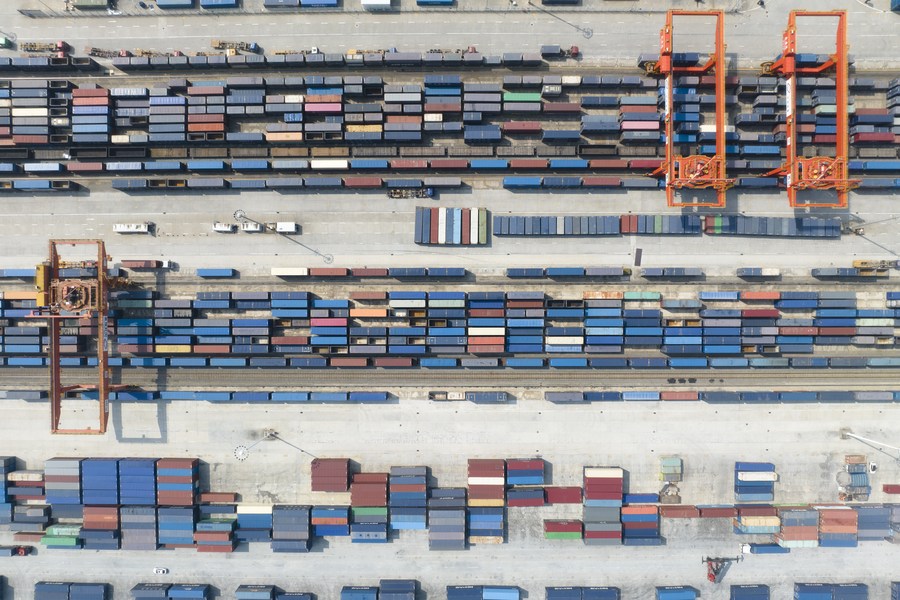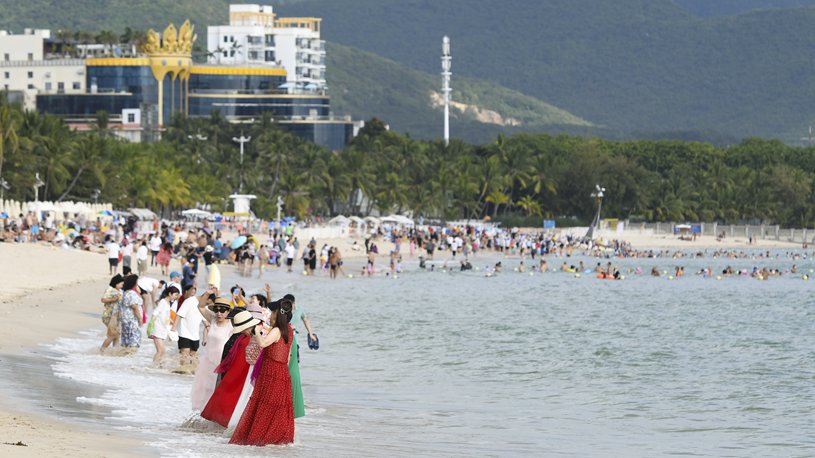
This photo taken on Oct. 17, 2023 shows a floral decoration for the third Belt and Road Forum for International Cooperation (BRF) near China National Convention Center in Beijing, capital of China. (Xinhua/Chen Bin)
BRI is a stable and sustainable initiative to develop economic cooperation between Portugal, China, and Portuguese-speaking countries, Ilheu underlined.
LISBON, Dec. 30 (Xinhua) -- The China-proposed Belt and Road Initiative (BRI) will boost relations between China and Portugal, said Fernanda Ilheu, president of the Friends of the New Silk Road Association (ANRS) in a recent interview with Xinhua.
Ilheu, who is also a professor at the University of Lisbon (ULisboa), said that this initiative should reach Portugal through scientific cooperation projects and commercial ventures, using both land and sea routes.
As a result, she said, there will be a consolidation of Chinese investments in Portugal. "There are many opportunities for China to continue investing. Cooperation ... will be fantastic for understanding China and Chinese technology," Ilheu said.
The president of the ANRS said that the Portuguese are already familiar with the efficient management of the Chinese companies which are present in Portugal, also recognizing the cooperation between Chinese and Portuguese management.
Portugal welcomes foreign investment, she said, especially when it comes to "updating our technology, modernizing our markets, and allowing companies to have sustainable economic development."
"Therefore, we always consider foreign investment as a positive issue. And ... we also consider Chinese investment a very positive issue," she said.

This aerial photo taken on Sept. 7, 2023 shows a view of Xi'an International Port in Xi'an, northwest China's Shaanxi Province. (Xinhua/Shao Rui)
Despite current global instability, the expert said that this does not affect China's relations with Portugal. "Most people admire China and want to cooperate," Ilheu said.
Recalling the 18 years she lived in Macao, she compared the "peaceful culture" of Portugal with Chinese culture. "I always understood that the Chinese people prefer balance and harmony, not conflict," she said.
"In the field of Portuguese language teaching, there are about 60 universities in China with Portuguese studies, and we also have many schools in Portugal that teach Chinese. There is good collaboration in terms of cultural exchanges" Ilheu said.
"At the level of tourism, we are now beginning to see Chinese tourism coming back to Portugal," she added.
Ilheu also spoke highly of the third Belt and Road Forum for International Cooperation held in Beijing in October.
BRI is a stable and sustainable initiative to develop economic cooperation between Portugal, China, and Portuguese-speaking countries, Ilheu underlined.
"We should all cooperate for the development and sustainability of countries," she said. ■











